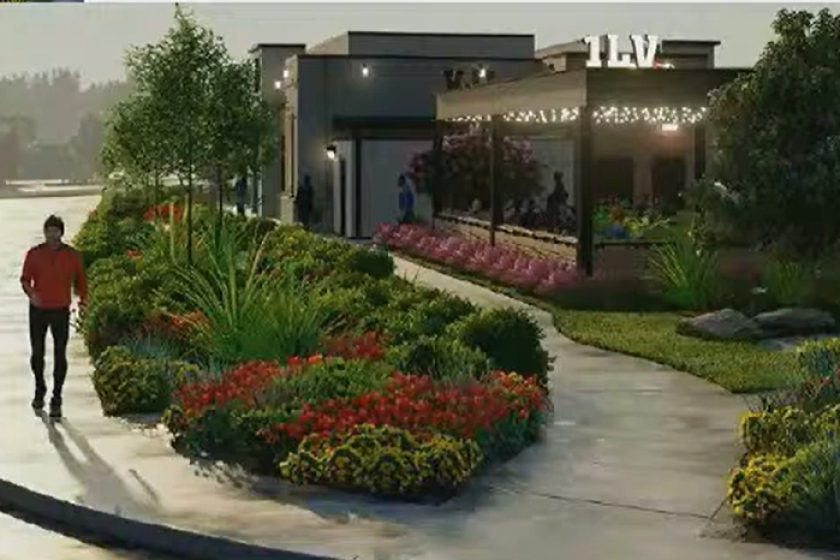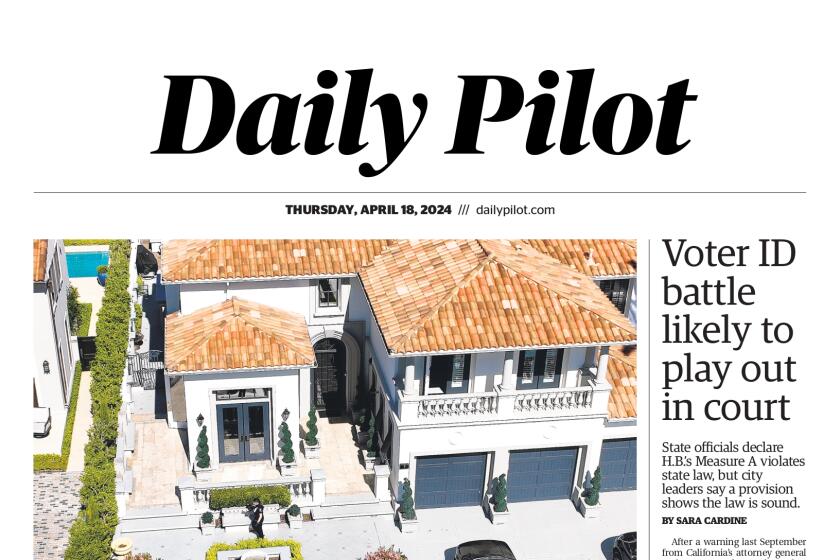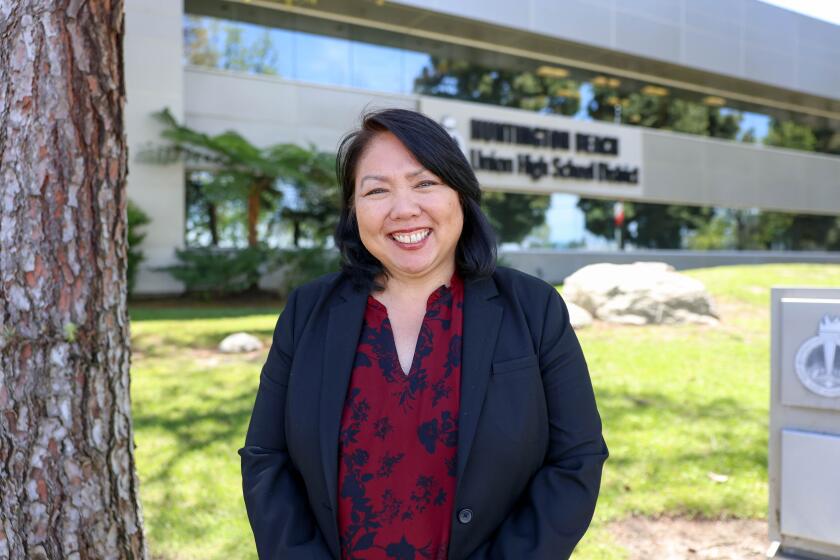Chaplains offer comfort in crisis
The man just had a knife to his throat.
Training was over, and it was time for the Rev. John McFarland to take action at his first call from the Fountain Valley Police Department.
Police talked the man down from taking his life, diffusing the situation and then offering to call in a police chaplain. This was the Fountain Valley United Methodist Church pastor’s first chance to use his training as a police chaplain to help the man deal with the situation.
The conversation took them out of the secular police world and into what McFarland, a Fountain Valley resident, called the “spiritual arena.”
“If a person commits suicide, it’s against the law, but they don’t have a legal battle. They have an emotional, spiritual problem — it crosses into our arena,” he said.
Officers of the peace
Police chaplains wear the uniform, but carry no gun. They aren’t there to convert residents to their faiths, but to comfort residents and police officers after a tragedy, said Lt. Jim McNeff in an e-mail.
The Fountain Valley Police Department started its police chaplain program in late 1993 as an additional option for grief and crisis counseling, McNeff said.
Chaplains are never forced upon a person, but their services are offered if an officer feels the person could use comfort.
“The primary mission of a police chaplain is to be available during a crisis and to assist as a comforter, not to proselytize or convert officers or the public to their specific faith,” McNeff said.
The department has seven police chaplains in the program representing the Christian, Catholic, Jewish and Mormon faiths. Religious leaders from all faiths can apply if they are willing to volunteer their time.
Police chaplains must be actively involved in their place of worship and have formal religious training. In the application process, volunteers must have a letter of recommendation from their religious institution and references and go through a background check, McNeff said.
“Each chaplain is assimilated into the department in a variety of volunteer experiences,” he said.
McFarland was one of the first to receive a letter inviting him to join the program, he said. Since he applied, he has been one of a core group of chaplains who have been involved for 17 years.
‘The peak of what I get to do’
Since his first call dealing with suicide, it has become a specialty of McFarland’s — talking down those contemplating the act and helping families pick up the pieces when their loved ones succeed.
“The officers want to comfort them, but it’s not their job, so they call a chaplain and the chaplains can come and hug and care for them,” McFarland said.
Helping a person is a process that starts when they agree to see a chaplain, he said.
McFarland said he is able to show them through passages in the Bible that suicide is not what they want to do.
“The first time I went through this process, this guy goes, ‘I’m listening to lies. I don’t want to take my life,’” McFarland said. “‘I’m being murdered.’”
Since his first call, McFarland been called to every situation from domestic disputes to helping a grieving new father whose infant died suddenly to going with parents to identify the bodies of their teenage children, but the anger, grief and violence usually don’t get him down — it’s the opposite.
It’s a privilege, he said.
“I am at the peak of what I get to do,” he said. “If you are gifted to do something, then when you’re thrown into that situation, particularly if it’s something that not everyone else is prepared to do, you feel humbled and honored to be with that person in there need.”
A spiritual calling
When growing up in the United Methodist Church, McFarland wasn’t always as serious, or as sure of his faith, as he is now. A self-proclaimed “church guy,” he attended, but wasn’t sure what he believed in.
“I saw myself as good person, but I didn’t know if I could really tell anybody with confidence or truth that [Jesus] rose from the dead,” he said.
It wasn’t until college, when many part with their religious beliefs, that McFarland fully embraced his.
Going to college for communications, McFarland lost his full-ride scholarship and was immediately offered another to finish his senior year and go to seminary.
The opportunity was a sign from God, McFarland said.
“I knew it was the life ring that was thrown to me by God, so I took it,” he said.
Volunteering as police chaplain has given McFarland the chance to be exactly where he, Jesus and his congregation want him to be, he said.
“It’s a privilege to be close to the pain of the wounded, because I like to be with Jesus and that’s where he is,” McFarland said.
Dropping into the middle of family problems, marital disagreements or personal tragedies and taking on the pain of a stranger doesn’t burden McFarland, who said he lifts it up to God in prayer.
“Even if it feels impossible to me, it’s possible with God,” he said.
What Do Police Chaplains Do? Police chaplains are called to the scene after police officers have diffused a situation to talk with those involved.Officers always give those involved the option to call a chaplain and never force one on anybody.Chaplains can talk with those involved or their families to help them deal with the situation or grieve.Officers can also utilize chaplains to confide in.
All the latest on Orange County from Orange County.
Get our free TimesOC newsletter.
You may occasionally receive promotional content from the Daily Pilot.



